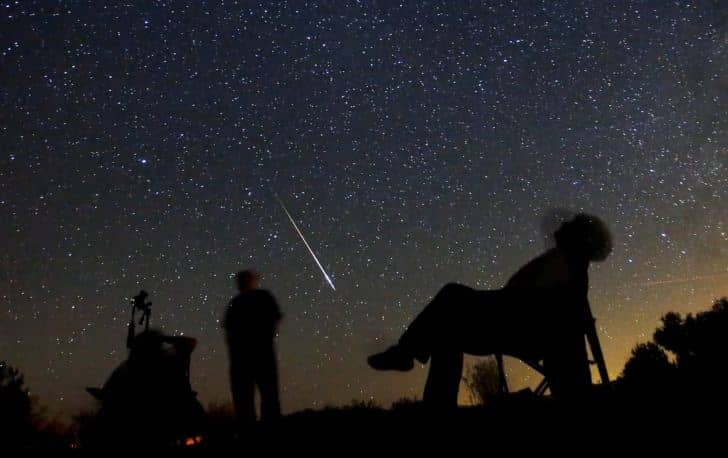

WARWICK, RI — Rhode Islanders can catch a view of the Orionid meteor shower for about two hours early Sunday morning as Ocean State weather briefly cooperates with stargazing enthusiasts during the event’s peak.
The Orionids take their name from the constellation in the night sky the meteors appear to be streaking into the atmosphere from. But the streaks of light are created from pieces of debris left over from Halley’s Comet as the Earth travels through it’s former path.
Halley’s Comet passes close to the sun every 74-79 years, shedding rock particles as it goes. It last appeared in the night sky in 1986 and will return in mid-2061. Every October, Earth’s orbit takes it through the debris, some of which get caught in the Earth’s gravity and enter the atmosphere, causing the Orionids, according to Space.com.
Interested meteor watchers should focus their viewing between midnight and dawn, and get as far away from city and town lights as possible. The Frosty Drew Observatory in Charlestown (the best spot in the state for stargazing with the least light pollution, though there isn’t an official viewing event scheduled.
The Orionid Meteor Shower is framed by some of the brightest stars in the heavens, said Bill Cooke, head of NASA’s Meteoroid Environment Office.
“Constellations such as Taurus, Gemini and Orion provide a glittering backdrop for the display. The brightest star of all, Sirius, is located just below Orion’s left foot, a good place to point your camera while you’re waiting for meteors,” Cooke said.
When to view:
Start craning your neck between midnight and 2 a.m. Sunday, Oct. 21, as the skies turn from partly cloudy to mostly clear.
Tips:
- Bring a blanket and something to prop your head up as you watch for meteors.
- Remember, state parks close at dusk, so while those areas are far from light pollution, you won’t be able to go in.
- This is a good night to let the other guy drive so you can just look up.
- If you see a very slow, bright object sailing across the sky, it’s either a satellite or a Space Station.
This is a test

